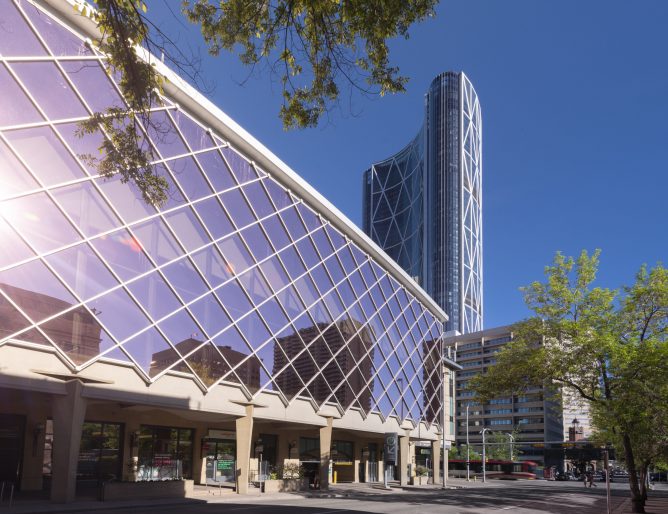It sounds strange to say it during an ongoing pandemic, but we’re arguably already living in a cleaner world. COVID-19 has brought a renewed focus on cleaning, disinfecting, and infection control and one quantifiable way to show that is through the GBAC STAR accreditation program. Launched by ISSA’s Global Biorisk Advisory Council in the spring, just weeks after the virus’ spread was defined as a full-blown pandemic in North America, the program is creating a new standard for facilities in how they clean and disinfect and, just as pertinently, how that is communicated to the public. It was born under the vast shadow of COVID-19 but combats all infectious disease.
The program
The program currently exists in two forms, facility accreditation and individual training. The former is intended for everything from stadiums to restaurants, from hotels to transportation hubs, from malls to grocery stores – in short, any public-facing arena in need of thorough sanitization. The latter is being taken up by supervisors and managers across all walks of life, from distributor salespeople to plumbing industry personnel. A third branch, open to service providers like building service or restoration contractors, is coming in the next few weeks.
GBAC STAR is designed by specialists who are well-versed in biohazardous situations and is built on 20 elements encompassing five stages – facility leadership and planning, goals and strategies, supplies and inventory management, training and prevention, and constant vigilance. Just six months on from its implementation, it’s fair to say it’s revamping the way cleanliness is practised and communicated by public-facing facilities.
Reflecting society’s new needs
ISSA did not set out to create such a seminal shift, Executive Director John Barrett says. He believes it’s simply a reflection of the needs of a pandemic world that the uptake has been so huge.
“It’s been a journey,” Barrett explains. “We didn’t set out to create a new global brand, we’re a trade association. But that’s what happened. It’s achieved the level of notoriety that you couldn’t have wished for, you couldn’t plan for. I don’t think it speaks to our skills, I think it speaks to the need more than anything.”
As ISSA Canada’s Executive Director Mike Nosko adds, it’s also recognition of the fact that the janitorial cleaning and maintenance industry is now acknowledged as a “frontline fighter” when it comes to infection prevention. “Since the pandemic started, the world has come to realize the significance and sheer importance of cleaning for health,” Nosko says. “A career that was once under-valued has now risen to the forefront and professional cleaners are finally receiving the recognition they truly deserve.
Barrett notes that to date since the facility program’s May launch, 3500 organizations in 80 countries have committed to GBAC accreditation and several hundred have already been through the process. For the individual program, launched a month earlier, over 15,000 people have committed in around 70 countries. Truly, it is a global phenomenon.
Clear benefits
At the heart of its appeal is that it ensures facilities can remain operating in full confidence and that that confidence can be passed on to consumers – patrons, tenants, travellers, and everyone in between – who can be assured they are entering a safe and clean space. After all, particularly during COVID-19, a space just looking clean is often not enough, with the general public hesitant – in most cases, at least – to venture back into high-density public spaces.
“Cleaning has always been viewed as an expense and with COVID-19 and programs like GBAC, it became a risk mitigation strategy really in two important ways,” explains Barrett. “It’s the pivot from pretty and nice-smelling to the removal of powerful pathogens, but it’s also real risk mitigation.” He notes that insurers are looking at GBAC STAR accreditation as one of the ways facilities and operators can demonstrate they haven’t been negligent. “We’re very close to having the link established where it will actually influence premiums,” Barrett says.
Then there’s the effect the enhanced consumer confidence has on facilities being able to maintain revenues. Barrett calls it a revenue generator and a differentiator for organizations like never before. He notes ISSA just opened its GBAC store for accredited people and facilities to buy a door decal of the shield denoting the achievement. “If anyone gets on an American Airlines plane, they’ll see the seal,” he says. “Every Hyatt hotel in the world. As time goes on and they increasingly see this seal, they’ll want to see it on the door of the beauty parlour, the restaurant, the bowling alley.”
Big-name adopters
A new facility directory tool launched by ISSA this month allows users to search for and locate any facility worldwide which has either achieved the accreditation or has committed to achieving it. In North America, these run the gamut across numerous industries. But a visible trend, particularly in Canada, has been that large venues like convention centres and stadiums have been the first to take it up.
Nosko stresses that the importance of any facility achieving GBAC STAR accreditation is “immense.” He notes this is regardless of the facility’s size, although in Canada it has largely been high-capacity venues in several major cities that have announced their accreditation, such as Toronto’s Exhibition Place convention centre, Vancouver’s BC Place stadium, and Montreal’s Montreal-Trudeau Airport. Recent weeks north of the border have seen things gathering pace, with facilities in Calgary, Edmonton, and Saskatoon all added to the list of venues to have achieved or committed to the program.
Barrett explains that in the U.S., due likely in no small part to the higher case counts and rates of infection, things have gone even further in just a few months. He notes that one of the great surprises ISSA has had with GBAC STAR is that entire cities are starting to commit to becoming GBAC cities. He cites Dallas, Baltimore, and Columbus as examples and notes that up to around 20 cities are proclaiming that the majority of their facilities – hotels, bars, restaurants, museums, transportation hubs, stadiums, convention centres – will be GBAC-certified.
In many cases, they’re going as far as to fund the certifications. “I think those cities are trying to use ‘GBAC destination’ as a differentiator,” says Barrett. “And I think it’s growing because of who is signing up. In New York, you’ve got the major transportation venues that have committed – LaGuardia, Kennedy – and the number one commercial office complex in New York, Hudson Yards.”
A “no-brainer”
While large public-facing venues were the first to adopt the accreditation, it’s actually hotels that are the most numerous in the program because they’re so public-facing. The cost of accreditation varies notably by size – from $15,000 for huge facilities like airports to just a few hundred dollars for restaurants and other smaller facilities – but the program is a “no-brainer” regardless, says Barrett.
“The cost of certification is so diminished compared to the benefits they receive. I think if people really understood the trade-off between the cost and the benefit, they’d go for it. It’ll just take time.”
For now, though, it’s certainly not a bad start.
For additional program details and information, please email Chuck Nervick at chuckn@mediaedge.ca or contact him at (416) 803-4653.







